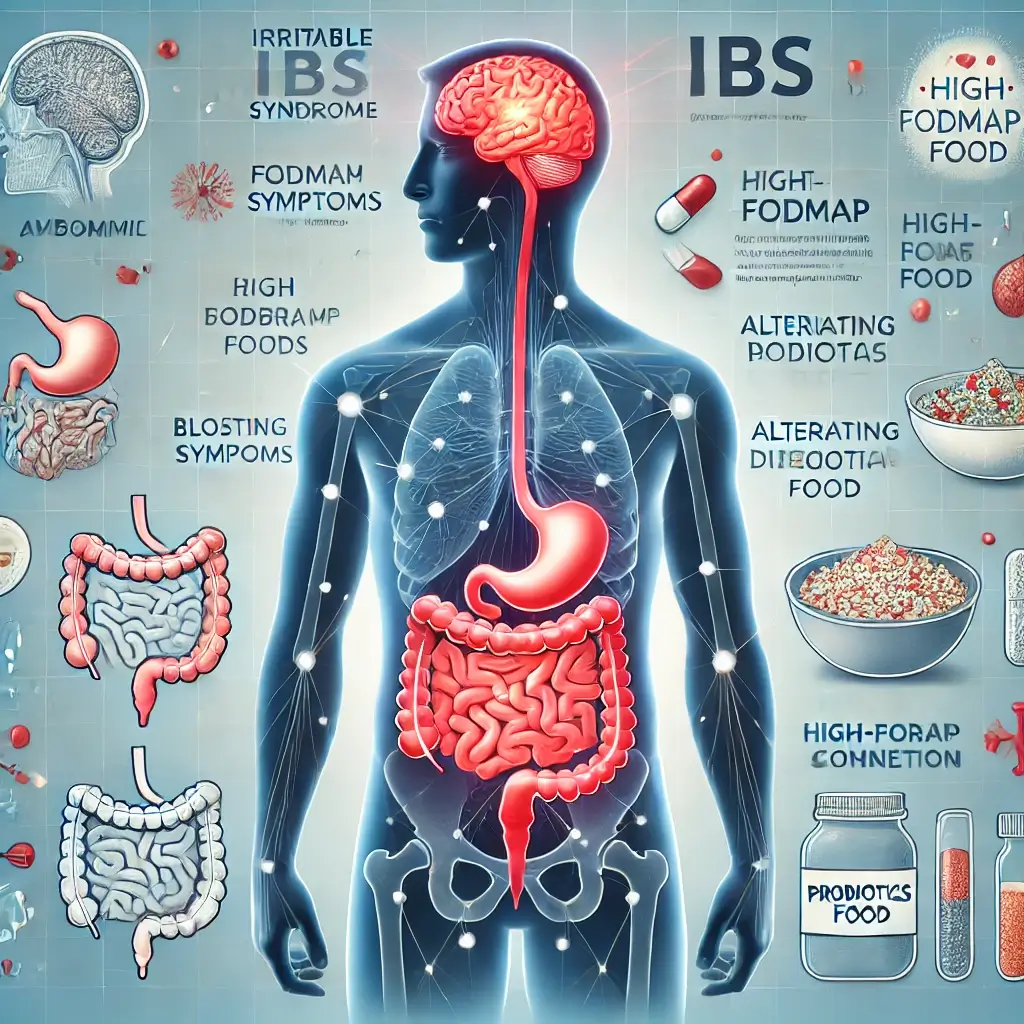Understanding IBS and Its Impact
Irritable Bowel Syndrome is a chronic and often debilitating condition affecting millions worldwide. It is characterized by symptoms such as abdominal pain and bloating, cramping, and irregular bowel movements, which may alternate between diarrhea and constipation. Although IBS is not life-threatening, its impact on quality of life is profound, often leading to emotional distress and social limitations, and reduced productivity. Despite ongoing research, the precise cause of IBS remains unclear. However, emerging evidence highlights the interplay of factors such as stress, dietary sensitivities, and gut microbiota imbalances as potential contributors.
The Complexity of IBS Management
The complexity of IBS lies in its multifaceted nature, which requires a personalized approach to management. Advances in gastroenterology have shed light on effective strategies for controlling symptoms. These include dietary interventions and stress management, and medical treatments tailored to individual needs. The focus on understanding the gut-brain connection and microbiome has paved the way for innovative solutions that offer hope to those living with IBS.
Article Purpose and Scope
This article explores the underlying mechanisms of IBS, reviews recent medical research, and provides actionable strategies to help patients regain control over their digestive health. By integrating scientific insights with practical recommendations, this guide aims to empower individuals with IBS to live healthier and more fulfilling lives.
The Gut-Brain Connection in IBS
The bidirectional communication between the gut and brain, known as the gut-brain axis, plays a significant role in IBS. Stress and emotional factors can disrupt this communication, leading to heightened gut sensitivity and symptom exacerbation. Psychological stress is known to trigger or worsen IBS episodes by affecting gut motility and increasing visceral hypersensitivity.
Understanding Gut Microbiome Dysbiosis
Research has highlighted the importance of gut microbiota in maintaining digestive health. Imbalances in bacterial populations, or dysbiosis, may contribute to IBS symptoms through mechanisms such as low-grade inflammation and altered gut permeability. Probiotic therapies are being explored as a means to restore microbial balance and alleviate symptoms.
Food Sensitivities and Their Impact
Individuals with IBS often report sensitivity to specific foods. High-FODMAP foods, which include fermentable carbohydrates, are common culprits. These foods can ferment in the gut, producing gas and triggering symptoms such as bloating and abdominal discomfort.
Dietary Management Strategies
Low-FODMAP Diet: Studies have demonstrated the efficacy of a low-FODMAP diet in reducing IBS symptoms. This approach involves eliminating fermentable carbohydrates and gradually reintroducing them to identify triggers. Collaboration with a registered dietitian is essential to ensure nutritional adequacy.
Fiber and Food Tracking
Fiber Modification: While fiber can benefit digestive health, its effects vary among IBS patients. Soluble fiber, found in foods like oats and psyllium, is generally better tolerated than insoluble fiber.
Food Journaling: Keeping a food diary helps identify dietary triggers and allows for personalized dietary adjustments.
Managing Stress and Mental Health
Stress is a significant exacerbating factor for IBS. Practices such as yoga, mindfulness meditation, and cognitive-behavioral therapy have shown promise in reducing IBS-related stress and improving symptoms.
The Role of Probiotics
Probiotics, particularly strains such as Bifidobacterium and Lactobacillus, may help restore microbial balance and provide symptom relief. However, their efficacy varies, and more research is needed to identify optimal strains and dosages.
Medical Treatment Options
Medications can address specific IBS symptoms:
Antispasmodics: Effective for reducing abdominal cramping.
Laxatives: Useful for IBS with constipation (IBS-C).
Antidiarrheals: Beneficial for IBS with diarrhea (IBS-D).
Consultation with a healthcare provider is crucial to determine appropriate treatments.
Comprehensive Wellness Approach
Managing IBS requires a combination of strategies tailored to individual needs. Open communication with healthcare professionals, trial-and-error with dietary modifications, and integrating stress management techniques are key components of effective care. Addressing the emotional impact of IBS is equally important, as chronic symptoms can lead to anxiety and depression. Support groups and therapy can provide emotional relief and a sense of community.
Future Perspectives and Hope
IBS presents a significant challenge, but advances in research offer hope for improved management. A personalized approach combining dietary changes, stress relief, and medical treatments can help individuals regain control of their digestive health. As research into the gut-brain connection and microbiome continues to evolve, the future holds promise for more targeted therapies. By staying informed and working closely with healthcare professionals, those with IBS can lead healthier, more fulfilling lives.
References
Böhn, L., Störsrud, S., & Simrén, M. (2015). Nutrient intake in patients with irritable bowel syndrome compared with the general population. Neurogastroenterology & Motility, 27(6), 807–816.
Ford, A. C., Harris, L. A., Lacy, B. E., & Quigley, E. M. M. (2020). Systematic review with meta‐analysis: The efficacy of prebiotics, probiotics, synbiotics and antibiotics in irritable bowel syndrome. Alimentary Pharmacology & Therapeutics, 51(3), 282–299.
Ford, A. C., Lacy, B. E., & Talley, N. J. (2018). Irritable bowel syndrome. The New England Journal of Medicine, 376(26), 2566–2578.
Ong, D. K., Mitchell, S. B., & Barrett, J. S. (2010). Manipulation of dietary short-chain carbohydrates alters the pattern of gas production and genesis of symptoms in irritable bowel syndrome. Journal of Gastroenterology and Hepatology, 25(8), 1366–1373.
Thursby, E., & Sonnenburg, E. D. (2015). The gut microbiome: Modelling microbial communities in the gut. Microbiology Spectrum, 3(3).
